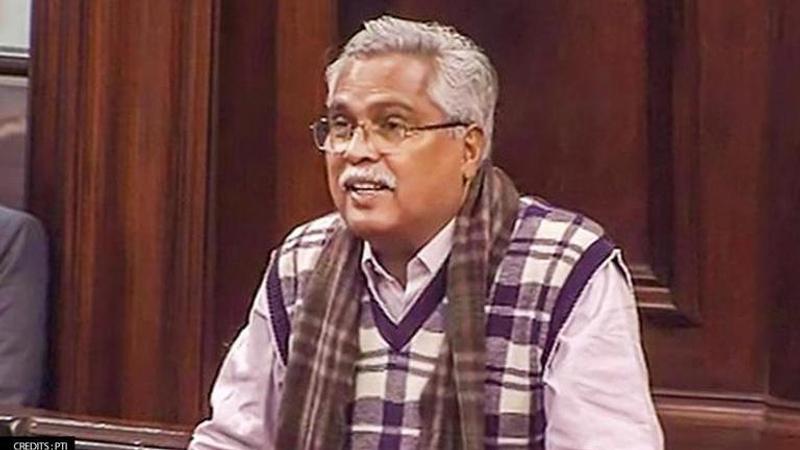Published 22:49 IST, August 5th 2021
'To keep Kashmir integral part of India, Article 370 a must': CPI MP Binoy Viswam's logic
On the second anniversary of the annulment of Article 370 of the Indian Constitution, CPI MP Binoy Viswam demanded its restoration.

As the country witnesses the second anniversary of the revocation of Article 370, MP Binoy Viswam of the Communist Party of India (CPI) demanded that the reintroduction of the Article in Rajya Sabha.
The article Article 370 of the Indian Constitution provided a special status to the erstwhile state of Jammu and Kashmir, which is now a Union Territory (UT). The CPI MP, during an interview with ANI, said "Jammu and Kashmir should have special status." He further stressed, "To keep Kashmir as an integral part of India, Article 370 is must."
The CPI leader also questioned the course of the country under the BJP-led government. He also spoke on the alleged rape and murder of the nine-year-old girl in Delhi's Old Nangal area. Earlier on August 2, a nine-year old Dalit girl was raped, murdered and cremated without her parent's consent.
What is Article 370?
Article 370 was a temporary provision that granted special recognition to the erstwhile state of Jammu and Kashmir. The article, under Part 21 of the Indian Constitution administered "temporary, transitional and special provisions" in terms of autonomy and stability over internal administration of the state from 1954 to October 2019.
The article exempted the State from applicability of the Constitution of India. Instead, it had the power to draft its own Constitution. The Central powers over the State were limited to three subjects- defense, foreign affairs and communications. Other constitutional powers could only be extended to the state on the occurrence of concurring events, the imposition of powers in such case should remain provisional and could be imposed until the 'concurrence' lasted. Lastly, the Constituent Assembly of the State could dissolve or amend Article 370.
Abrogation and repercussions
The Government of India declared the special status granted to Jammu and Kashmir as "inoperative" on August 5, 2019. The government mentioned that Article 370 had been subjected to amendments from time to time without any modifications and exceptions, thus, it was deemed fruitful to abrogate the special status with an aim to resolve the long-standing conflicts and several internal socio-political issues of the erstwhile state. The President of India issued an order under the power of Article 370 superseding the pre-existing 1954 presidential order which nullified the special status. While many national and regional parties supported the move, many opposition parties in Kashmir valley reacted with dissent.
Current status
An inspection visit by the Parliamentary Standing Committee on Home Affairs to Jammu and Kashmir and Ladakh is scheduled to take place from August 17 to August 21, 2021.
According to ANI, the Standing Committee will visit Leh, Srinagar, and Jammu to review and examine matters relating to the administration, development, and people's welfare in the Union Territories of Jammu and Kashmir and Ladakh. The review committee is also said to conduct a detailed study on the working conditions of the three Central Armed Police Forces, namely Indo-Tibetian Border Police (ITBP), Central Reserve Police Force (CRPF) and Border Security Force (BSF) in the two Union Territories bifurcated in August 2019.
(With inputs from ANI)
Image: AP,PTI
Updated 22:49 IST, August 5th 2021





